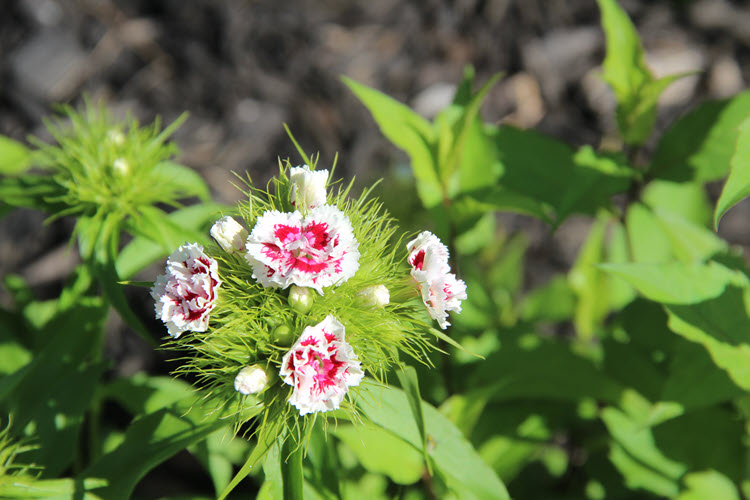I recently met someone who became a horticulture therapist after leaving the field of education. I was intrigued by our discussion and the therapeutic power of gardening for our elders.
The practice of horticulture for therapy and rehabilitation gained traction in the 1940s and 1950s as part of the rehabilitative care for hospitalized war veterans. Today, you will find horticulture therapy used in physical rehabilitation and vocational settings to help people learn to work independently. But it is the success this modality has in helping to improve memory, cognitive abilities, task initiation, language skills and socialization that really caught my attention.
Even if your elder was never a gardener, the right garden can be a soothing and calming activity that reduces stress and anxiety levels and if the activity is shared with someone else, helps reduce social isolation. Because the tasks are simple and hands on, elders often find it helps clear the mind and settle nerves and nurturing plants can give a sense of purpose and accomplishment. It doesn’t matter if the garden is filled with flowers or vegetables to harvest, the benefits are the same. In addition, gardens involve physical movements such as lifting, reaching and bending that can help improve strength, coordination and endurance.
The physical benefits of gardening are well documented, but the reality is as we age, bending, digging and weeding get more difficult. The key is to switch from in-ground gardening to stand-up beds, large planters and vertical gardening with low water perennials. Just be sure that pots do not block the pathway. To minimize trip hazards, make sure trailing plants and leaves are not in the way of walking.
There are many adaptive gardening tools initially designed for people with arthritis that your elder can benefit from using. Start with good gloves that have foam padding inside. A lightweight coil hose or soaker hose is a better option than watering cans. A garden cart to haul the tools in is a necessity. Look for easy grip, ergonomically designed “adaptive gardening equipment” to find tools, like a trowel with a vertical / upright handle.
Because gardening requires focus and attention to detail, research has found that gardening generated higher levels of productive engagement and positive affects in people with dementia as compared to other types of engagement activities. For more on the Cambridge study, click here. In another long-term study published by the National Institute of Health (NIH), researchers found daily gardening represents the single biggest risk reduction for dementia. The reason why is not clear, but gardening involves critical functioning like strength, endurance, dexterity, learning, problem solving and sensory awareness. Keeping these executive functions for as long as possible may be the reason for risk reduction for dementia.
To get the full benefit of gardening for people with a progressive brain disease, you can design a therapeutic garden with raised beds, planters and vertical gardens that use color, touch and scent to inspire calm and the recollection of memories.
I know how therapeutic gardens can be. Being able to sit with a cup of coffee in the early morning while looking at my garden is one of the most relaxing things I do for myself.
Disclaimer: The material in this blog is for educational purposes only. It is not intended to replace, nor does it replace, consulting with a physician, lawyer, accountant, financial planner or other qualified professional.
Deb is the author of “Your Caregiver Relationship Contract and “A Relationship Contract for Dementia Caregivers.” Your Caregiver Relationship Contract is available in both English and Spanish. It explains how to have an intentional conversation and the how unspoken expectations can cause problems during caregiving. A Relationship Contract for Dementia Caregivers explains how important it is to learn how your person wants to live their life out and how you, the caregiver are the most important person in this relationship, giving you tips and tricks for this journey.
Click here to learn more about Your Caregiver Relationship Contract or here for the Spanish version: Su Contrato de relación como cuidador de un ser querido. Click here to learn more about A Relationship Contract for Dementia Caregivers.
Deb is available as a caregiver consultant. She will answer the question: “Where do I start?” and find the resources to alleviate your stress. If you would like to invest a half hour to learn how she can help you, please contact her at: Free 30 minute consulting call

